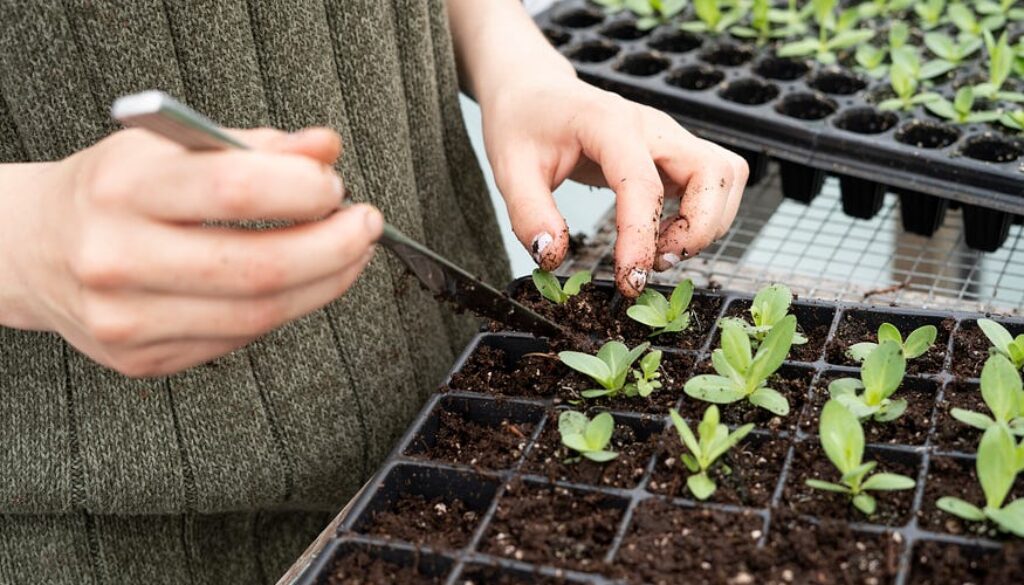Developing a Growth Mindset Can Make Aging Easier
I can’t turn back the clock, but I can change the way I see myself
By Michele Cambardella
Photo by Zoe Schaeffer on Unsplash
Little did I know that Carol Dweck’s book Mindset: The New Psychology of Success would have any bearing on my life whatsoever.
I had been teaching for 25 years when my then-principal introduced this book as the next best thing since sliced bread. When you teach in a public school, the merry-go-round of educational terms all begin to sound the same. Dweck’s idea, though, was different and as it turns out, proved to be sound and incredibly helpful.
First, it is important to understand two terms she refers to frequently: fixed mindset and growth mindset.
Having a fixed mindset is believing that intelligence, talent, and other qualities are innate and unchangeable. If you’re not good at something, you typically think you will never be good at it.
By contrast, having a growth mindset is believing that intelligence and talent can be developed and deepened with practice and effort.
I need to let that sink in when I am faced with a task that I “know” I can’t master.
Some simple examples in my own life are illustrative: 1.) I can’t read a map. I struggle with spatial directions; 2.) I can’t work out. I often hurt myself more than help myself when I push too hard; and 3.) I can’t bake. I have bumbled up enough recipes and it is clearly time to accept the fact that I can’t do it.
Now I need to look at my thinking using Dweck’s lens of fixed mindset vs. growth mindset.
I can’t read a map. I was so convinced that this is true that once, when lost in the central Pennsylvania mountains where I had no phone signal, I wouldn’t even consult a map because I was certain I couldn’t read it.
Out of necessity, I had to dig a little deeper, employ some grit, and give it a try. Shifting that fixed mindset to a growth mindset, I dug out the map that was stuffed into the glove compartment. I learned that if I settle myself and took my time, I actually could read a map. I successfully found my way out and am no longer lost in the unmarked mountain roads of PA.
I can’t work out. I will hurt myself more than help myself when I push too hard. There is some truth in this statement. I am a take-charge, let’s do this, kind of person and can get a bit too aggressive when it comes to wanting to feel better.
For whatever reason, I do have the tendency to hurt myself; however, that does not mean I cannot exercise. Shifting to a growth mindset involves accessing help from experts. What I need is proper supervision and guidance from a physical therapist to help me discern what will help me and what will not help me.
I can’t bake. For years I have fulfilled this idea with panache! I made chocolate chip cookies that flopped, I baked cakes that were flat, and I struggled to make the simplest of recipes, pancakes. Using a growth mindset, I needed to figure out what I was doing that wasn’t working and address that error. Dweck’s premise is that our mistakes can teach us best.
As it turns out, I learned that I do not follow directions. In cooking, that can be a strength. I improvise. I flex. I have fun. And the result is often delicious. That does not work with baking. Baking is chemistry; directions matter. I am very proud to say that I have now mastered baking two kinds of biscotti, many types of cakes, and even, delicious fruit pies, all because I am following directions. I have yet to tackle a good homemade pancake, but I am hopeful!
Dweck says, “The passion for stretching yourself and sticking to it, especially when it’s not going well, is the hallmark of the growth mindset. This is the mindset that allows people to thrive during some of the most challenging times in their lives.” Applying this idea during times of crisis is very helpful. We can often do what we didn’t think we could do when we persist and try harder.
Operating in this space, just outside of a comfort zone, is the key to improving performance. In her TED talk, Carol Dweck emphasizes an important three letter word: “yet.”
“Are you not smart enough to solve it …. or have you just not solved it yet,” says Dweck. Yet is the operative word.
Her theory says that when we use a growth mindset, we can actually change our brain chemistry.
In an article entitled “Why Mindset Matters,” Dweck explains that “Study skills and learning skills are inert until they’re powered by an active ingredient. Students may know how to study but won’t want to if they believe their efforts are futile. If you target that belief, you can see more benefit than you have any reason to hope for.”
This suggests that participants processed making mistakes in such a way that they believed with hard work, they could succeed. Practicing a growth mindset with a good deal of effort and grit can lead to more success. It is important to be willing to make mistakes.
Am I the lifelong learner I have always wanted to be? Am I able to deal with mistakes I make by trying again and again? Am I able to see myself as succeeding?
I believe there are certain natural limitations that we cannot change. I will never be an Olympic skier at this stage of the game, nor will I write the great American novel. However, Dweck challenges me to think about those statements. If I want to ski, is there a way I could learn to ski? If I want to write and publish, is there a way I can do that? Indeed, there is!
Grit is the most valuable part of a growth mindset for me. Grit is the characteristic that has helped me most in my adult life. Even when circumstances are very difficult, sticking to something and not giving up matters. What Dweck says is that when we employ grit, we can change our adult brains. We can improve both long-term and short-term memory.
Grit affects the functional process of the brain. Dr. Lara Boyd, a brain researcher at the University of British Columbia, explains that when we stick to something and persist, we can learn new things; however, it takes time and is more likely to happen when we practice a growth mindset. She goes on to say that behaviors we employ in our daily lives change our brain, both positively and negatively. We make decisions about how and what we learn best. The best strategies will vary between individuals and even, within individuals (TEDx Vancouver, 2015).
There is a fine line between grit and stubbornness. Someone who demonstrates grit faces a task with flexibility. If one way to solve a problem doesn’t work, someone with grit finds another way to make it work. Stubbornness, on the other hand, includes a rigidity that blocks the flexibility necessary for growth.
In order to face tasks with a growth mindset, it’s important that I am aware of my own thinking. It’s pretty great to know that with that keen awareness and a good dose of grit, I can experience more growth, and be the lifelong learner I long to be.



